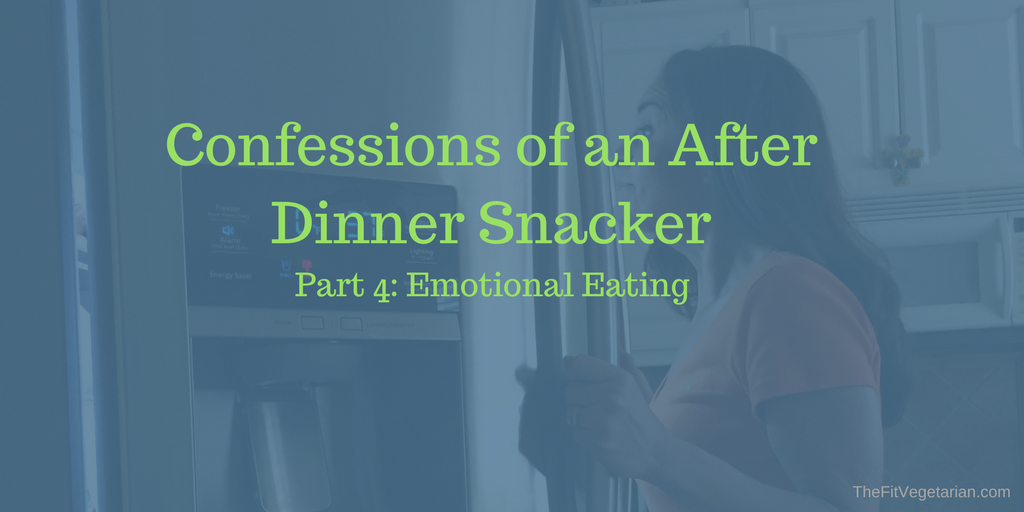CONFESSIONS of an AFTER-DINNER SNACKER—Part 4 Emotional Eating

Eating Your Emotions
Show me an emotional eater and I’ll show you someone who snacks at night. Unlike cravings that are brought on by nutritional deficiencies (see part 3 in this series), emotional eating is not driven by this same mechanism. Emotional eating is an avoidance behavior. That is, the food allows us to avoid feeling a certain way (lonely, angry, stressed, etc.). States of boredom, overwhelm, fear, anger, frustration, even grief can lead to packing on the pounds and inches thanks to mindless night-time snacking. The good news is that, now that you’ve pinpointed why you’re snacking, you can work on curbing it.
- RELAX
Take just 15-20 minutes to relax before you indulge with a snack. A little stretching, meditating, or deep breathing will do wonders to center you and calm that urge to snack.
- DISTRACT
Channel your inner toddler and distract yourself. Check the mail, make your list of things you’re grateful for on that particular day, phone a friend to say hi, play fetch with the dog, etc. You will likely forget that you were wanting a snack in the first place!
- TAKE a PIC of YOUR FOOD
Simply taking a picture of your food before you dive in will make you think twice about what you’re eating and why. (It works. Try it for yourself)!
- EAT at the TABLE
Treat your snack like a meal. Put it on a plate and sit down at the kitchen table to enjoy it. This makes it register in your brain as a meal and not just a snack that really doesn’t “count.” If you’re truly hungry, you’ll go the extra mile to set the table and dig in. If it’s an emotion that is driving you to snack, this will make you think twice about it.
- SAY IT ALOUD
You’re bored, angry, or sad and reach for that late-night snack. STOP! Before that food reaches your lips, look at it and be honest with yourself. Acknowledge that you are not eating out of hunger but rather out of an emotional need. Now say it out loud (just make sure no one is within hearing distance, or you may sound a bit nutty). LOL! For example, “I’m really not hungry. I’m angry. I’m going to eat this bag of chips or pint of ice cream because I am angry.” Identifying the true reason why you’re reaching for the food and hearing the absurdity of the rationalization often is enough to dissuade you from having the snack.
- KEEP a FOOD JOURNAL
Keep a running log of the feelings that are driving you to snack. Look for patterns. You may see that when you’re lonely, you tend to snack. If this is the case, address the issue of loneliness by contacting a friend, making plans, etc. rather trying to stuff it down with food.
- SLEEP MORE
Lack of sleep leads to irritability and emotional volatility which, in turn, leads to emotional snacking. You see where I’m going with this? Get enough ZZZs people!
When you eat because of your emotions, you are choosing to relinquish your power. Well, if you’re not in control, then what is? The food is in control. This is no bueno! Try implementing some of the strategies outlined above and use the ones that work best for you. Before you know it, your emotional eating will be in check and you may even find yourself a clothing size or two smaller! You’ll also be #FuelingUpforaFitLife which is exactly what you want to do.





